Alessandro Cadario: ‘When we create music, we always understand each other, regardless of our differences’
The Italian conductor about the unique sound of Russian orchestras, the nature of love for classical music in Russia... and quantum physics
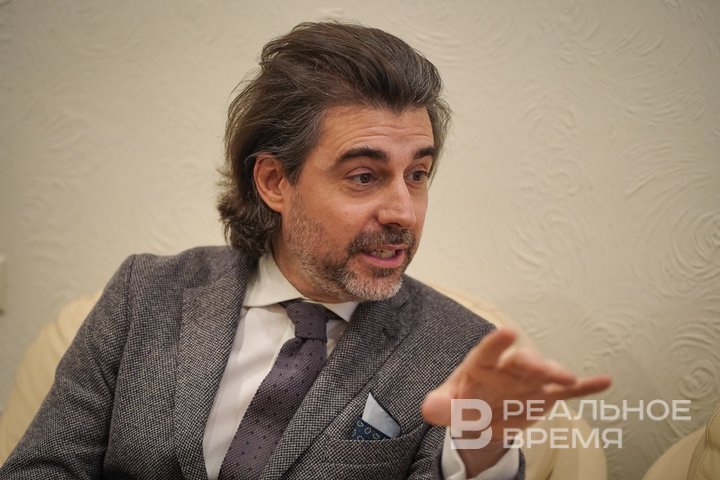
The Rakhlin Seasons festival of the State Academic Symphony Orchestra of the Republic of Tatarstan ended. The final concert turned out to be Italian: Miriam Prandi from the musicAeterna orchestra performed the cello solo, and the orchestra was conducted by Italian maestro who has already become a favourite among our audiences, the principal guest conductor of the Milan orchestra I Pomeriggi Musicali Alessandro Cadario. Realnoe Vremya attended a rehearsal of the orchestra and talked with maestro Cadario about his favourite music, about the difference in its perception in Europe and in Russia. And also about the musician’s unusual hobbies and how quantum physics is connected with music in his life.
“The idea was to bring a piece of our spirit to the performance of this music”
You have been coming to the festival of the State Academic Symphony Orchestra of the Republic of Tatarstan for several years in a row. Do you like Kazan so much?
I like meeting with your orchestra. What kind of cooperation will be is a secret every time, but I am pleased that each time we use the previous experience of playing together. I must say that now, on our fourth meeting, we have already developed a certain automatism in our work.
And have you managed to see the city during these four visits?
During this visit, I finally managed to visit the Kremlin, go into the Qul Sharif Mosque, onto its balcony. I saw a little of the city, and it seems to me that it is very beautiful. This time, we were also lucky with the weather: on my previous visit it was cold and cloudy, and now it is sunny and very warm. So everything came together!
This time in Kazan you are performing Dvorak and Mendelssohn. Tell me, did you choose the program yourself? And if so, what dictated your choice?
These composers have long been present in my repertoire. In particular, I often perform the Italian Symphony with my orchestra in Milan, I really like conducting this music. The idea was to bring a piece of our spirit to the performance of this music. It was very interesting to see how the musicians would understand my approach, whether they were ready to look for nuances in the presentation of this famous composer with me. And in this sense, our meeting with the orchestra turned out to be productive: they are very open to change!
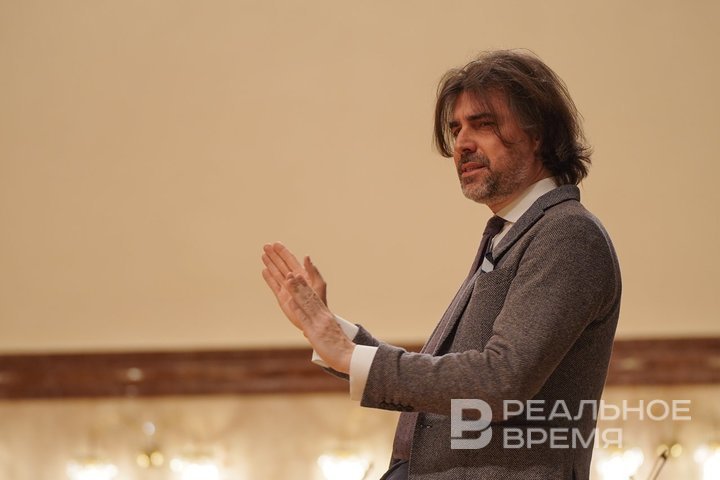
So, you managed to find common approaches to this music?
We did, they understood everything! I will explain what I wanted: many people mistakenly believe that this Mendelssohn symphony is a kind of caricature of Italy. But in fact, Mendelssohn managed to convey not a banal description of the places he visited in Italy, but a very interesting emotional essence.
For example, in the first part, I am struck by the Italian enthusiasm that is present in us. The second part tells about the religiosity of the south of Italy, with its processions, which still exist today in their folkloric form, with marching brass bands. The elegance of the minuet is another typical Italian feature. And finally, the joy of dancing in the final tarantella! I explained these moments to the orchestra, and I hope that all this will be returned to the audience! Very characteristic aspects of Italy were chosen for this symphony, and Mendelssohn did a great thing here.
Made a short anthology of Italian musical life?
You could say so.
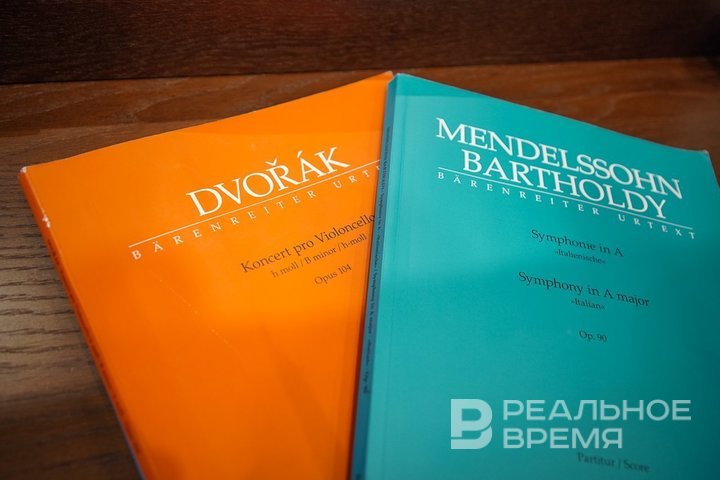
“Russian orchestras around the world are famous for their special string sound”
Do orchestras differ in different countries, is there a concept of national mentality in the case of a musical group?
Of course, each musical culture has its own characteristics. For example, the sound of Russian orchestras is, first of all, a product of the great school of string instruments. There is a certain type of sound here — powerful, with great vibration and depth, which comes from a very specific technique. Russian orchestras around the world are famous for this special string sound.
Of course, it is clear that I expect one specific sound from an American orchestra, another from a German orchestra, a third from a French orchestra, and a fourth from an English orchestra. The talent of a conductor lies in making the best, maximum use of these characteristics. Each culture clearly expresses its own characteristics.
But the main thing: we are musicians. We have our own international language, for us music is above all. And that is why I am here. It doesn't matter what country in the world I am in — we don't need to talk much. When we create music — we always understand each other, regardless of our differences.
What music do you prefer to perform? Do you have favourite composers or favourite works?
There is no clear answer to this question. Of course, I love well-written, brilliant works. But they were written by very different composers. I can start with Monteverdi's madrigals, written in the 16th century. From him we move on to Mozart, who is a special composer for me. I have special feelings, as well as for Brahms and Mendelssohn — these are all authors who are very important to me as a starting point. In the twentieth century, I was always interested in those who were a little different from the rest — for example, Stravinsky. Of course, the entire Russian school and the entire French school of the twentieth century are important to me, for example, Ravel. But this is only a small part of my interests, from the point of view of the classical repertoire.
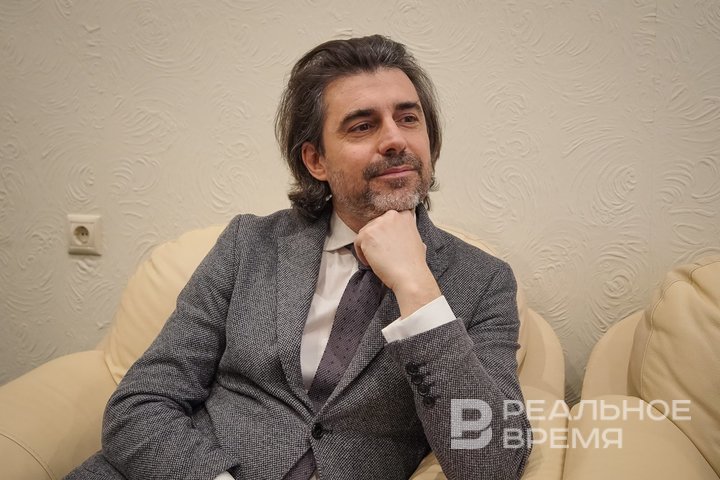
“In Russia, the audience is always very large, warm and interested”
And does the audience behave differently in different cities and countries? As a conductor, do you feel their attitude, does it influence you?
The audience is also very different. It all depends on how they know, see, feel the music. Here, in Russia, the audience is always very large, very warm and very interested, from a musical point of view. Not detached. And, of course, such an audience gives a conductor a lot of energy and support. But there are also some universal things common to all countries, such as the rustling of candy wrappers or coughing in the audience (smiles).
In recent years, it has been difficult to buy tickets for classical music concerts in Russia, and the audience has become much younger. Have you noticed a similar rise in interest in classical music in Europe? What do you think this could be connected with?
In European countries, this is not the case — I cannot say that the audience is that young. The average Italian audience is, on average, an older and less active audience. As I understand it, in Russia, music is important in the formation of a person and is present from the very beginning — this can begin with a children's choir, for example. This is an important aspect of education — live classical music becomes normal, regular entertainment, cultural growth. But in Italy, this is not the case — and this, in my opinion, is a bit absurd, because it contradicts our cultural tradition.
In your country, we see the fruits of significant investments in the education of young people — and all this forms a special attitude to culture. This is why I enjoy coming and conducting here. Not only for the sake of your excellent orchestras, with which I have the opportunity to work. But also because the musician is treated with attention and respect, which always seems ideal to me.
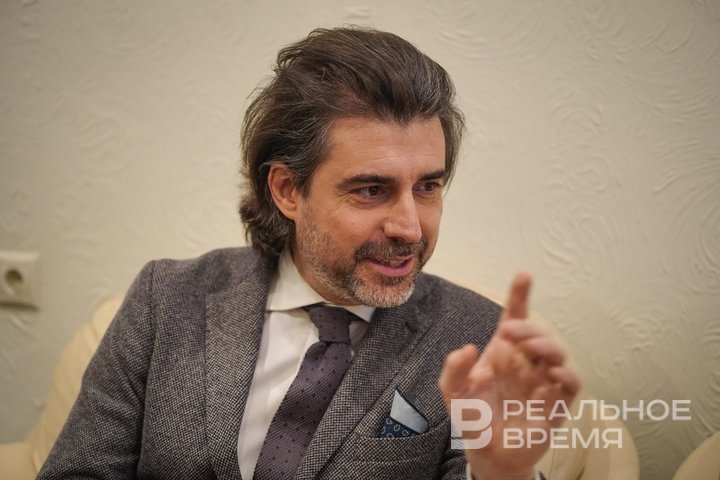
Are there any conductors you look up to, who you take as an example? A standard of conducting, in your understanding?
I can’t single out anyone in particular. Firstly, it is very important for a conductor to listen to his colleagues as much as possible, to see their work — to be able to compare, to grasp aspects that you hadn’t thought about before. Secondly, I single out for myself conductors who are focused on a specific repertoire. For example, I can name Riccardo Muti as a standard when he works on Verdi’s works. In the classical repertoire, I am very interested in the work of John Gardiner. Among Russian masters, I would mention Teodor Currentzis as an example of an experimental conductor, and I would especially single out maestro Yuri Temirkanov, who, it seems to me, combined a certain elegance with a genuine Russian spirit.
“There are many common points between the world of music, astrophysics and quantum physics”
Let's return to the State Academic Symphony Orchestra of the Republic of Tatarstan, with which, as you said at the beginning of our conversation, you enjoy working. Tell me, how would you characterize it, what are its main qualities?
The most important thing I would like to note is that this orchestra has a great ability to change, to adapt to the conductor's requirements. I have played very different pieces with it. This group has impeccable discipline, it is very effective to work with it. I am not only talking about the banal discipline when everyone sits quietly and listens to the conductor. I am talking about the fact that they always come to rehearsal perfectly prepared!
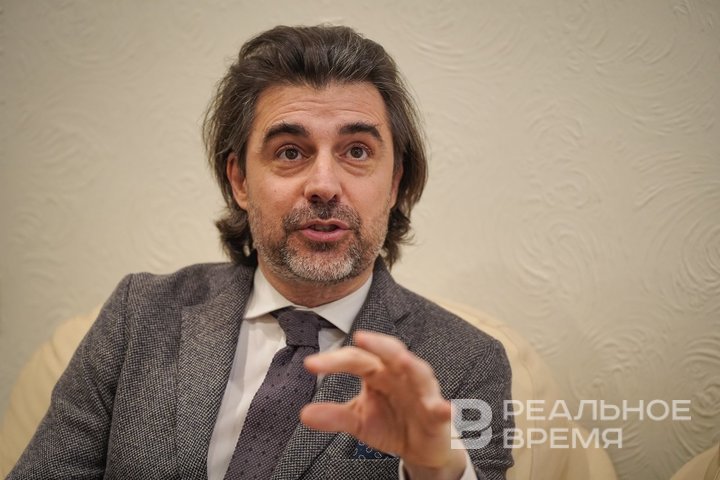
You are interested in astrophysics and quantum physics. Where did such an unusual hobby come from for a musician?
I wouldn’t say it’s strange for a musician. I think that there are many common points between the world of music, astrophysics and quantum physics — it all starts with what objects are made of. For starters, it’s possible that there is no matter at all, and everything in the world is waves, short vibrations. I mean the very interesting string theory, according to which each particle is a separate vibration — as if it were music! And it turns out that matter is formed by vibration, each time differently. It’s very interesting and exciting! This hobby (along with cooking) gives me some ideas even in everyday life.
And as for astrophysics, I have a large professional telescope on my balcony, and I really enjoy watching the starry sky. I read scientific materials — now, thanks to the Internet, it is accessible, and it is easy to stay up to date with new inventions, theories and discoveries.
Reference
The editorial board thanks the press service of the State Academic Symphony Orchestra of the Republic of Tatarstan for assistance in preparing the interview and organizing consecutive translation.